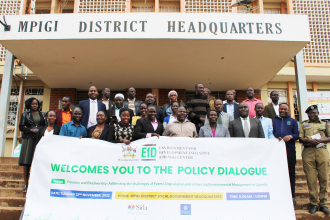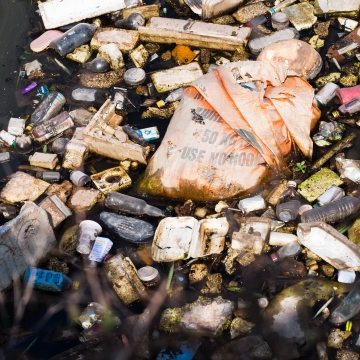Can school environmental education programs make children and parents more pro-environmental?
We evaluate the direct and indirect effects of an environmental educational program with value-laded content on children's and parents' knowledge, attitudes and practices regarding the consumption and disposal of plastics. We do this using a randomized field experiment targeting fourth-grade children in Chile. The educational program had a sizeable and a positive impact on children’ knowledge, attitudes, and practices, but no effect on parents' behavior.

Wallace Conference
The eighth edition of the Wallace Scientific Conference will take place from May 30 to June 2, 2023, reuniting researchers, experts, and decision-makers that will discuss and analyze the…

“Energy is the golden thread that connects economic growth, social equity and environmental sustainability”
EfD researcher Marc Jeuland from Duke University visited EfD Uganda on December 1st. He was invited to share his work in the area of energy economics in a seminar and inspire research fellows and…

Senior civil servants met to discuss green growth policies
27 civil servants from five East African countries met in Rwanda on November 22-24 to discuss policies for achieving a green and inclusive economy in their countries. This cross-country workshop was a…

Uganda’s local governments want to decentralize governance of national forests
The Mpigi District Local Government and stakeholders in the forestry sector want environmental economists from Makerere University to conduct research on the impacts of decentralizing the governance…
Influences of various pricing points: an experimental study of plastic bags in Johannesburg, South Africa
Policymakers have little experience regarding designing the right levels of pricing for plastic bags. The ineffectiveness of charging for bags, in countries such as South Africa, makes it imperative that we map the demand curve. Getting the charge “right” depends on the size of the externality. Charging for bags is therefore an effective intervention to encourage consumers to carry their own bags to the stores. We employ a contingent behaviour (CB) dataset necessary to estimate the charge level that is likely to lead to a reduction in bag use over time.

EfD Chile researchers discussed local environmental policy with politicians and other stakeholders
The Eigth Annual Meeting on Environmental Economics was marked by face-to-face attendance and included the participation of representatives from the academic, political, business, and civil society…

EfD Uganda launches two projects regarding the National Water and Forest Authorities
The Environment for Development Initiative (EfD) Makerere Centre has launched two new collaborative projects, one on improving the National Water Authority’s water bill payments and one analysis of…
Pagination
- Previous page
- Page 6
- Next page

